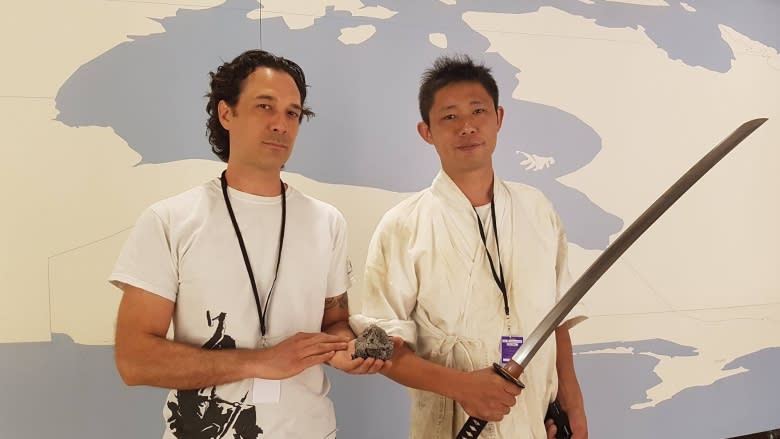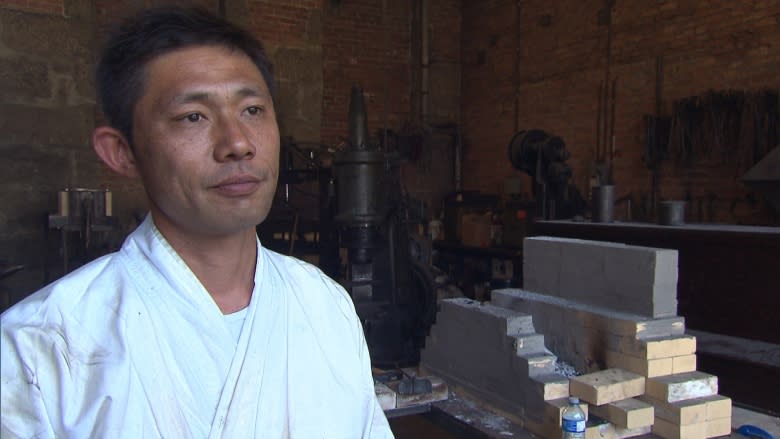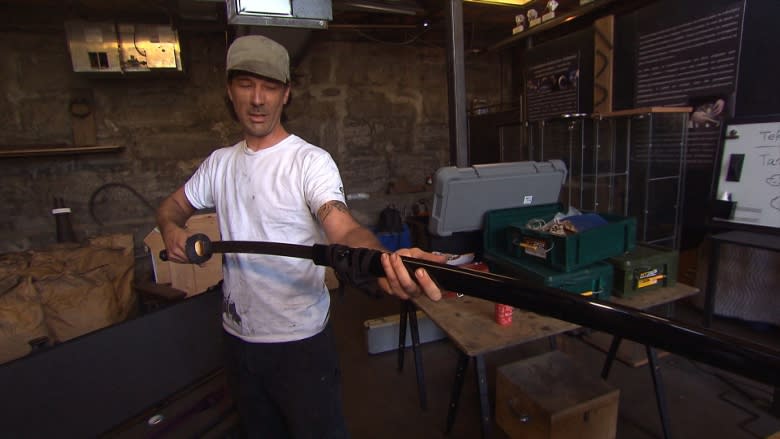Live by the sword: Master Japanese swordsmith in Montreal to teach his craft
About 20 years ago, Allen Rozon was working a corporate job in advertising and doing more creative work on the side.
Evenutally, he decided he wanted to put more time into those creative pursuits. He discovered blacksmithing, fell in love, and started travelling the world to keep learning.
"If I were to compare my prior financial life to this one, it's a stark difference, but I'm much happier as a result. The work I do is more fulfilling and I'm proud to show people what it is I do," said the Quebec native.
Not long after he took up the profession, he attended a demonstration in Montreal put on by master Japanese swordsmith, Taro Asano, and made sure to introduce himself.
Since then, the two have been travelling the world, with Rozon helping Asano teach others his craft.
For what will be his final course for the foreseeable future, Asano will be putting on a 10-day, $6,000 course at Les Forges de Montréal, which will double as the launch for Rozon's new business, Iron Den Forge.
Sold-out seminar
Rozon said the seven people who will take part in the course come from Canada, the U.S. and even Thailand.
Some are interested in Asano himself, others are interested in swords or Japanese culture on some level, but all of them are passionate about the craft.
Robert George made the trip to Montreal from Austin, Texas just to attend the workshop.
"It's a very rare opportunity for a Japanese swordsmith to teach westerners. It's been a real experience," George said.
Asano is the only master swordsmith who gives classes to non-Japanese people who aren't apprentices, Rozon said.
"It's easy to be passionate when you know you're amongst the very few to be doing this."
Asano has been making knives since he was 13 and started his sword-making apprenticeship when he was 20.
His English is limited, but he said no matter where he goes, he can always speak to people through his craft.
"Swordsmithing is one of the great languages. I can talk with western people or Asian people, over time, with that voice," he said.
Steel flown in from Japan
It will cost at least $40,000 to put on the course, Rozon said. They flew in sword steel smelted in Japan for the pupils to use.
And there's a 20 per cent failure rate — the finished product "doesn't always survive."
But the main lesson of the course is process. They try to persuade the participants to focus on the method, not what they will get out of it at the end, Rozon said.
He is launching his business with this course, which is highly advanced and technical, but the hope is that the participants acquire skills they can apply to their own work.
1 month to make a blade
It takes Asano about one year to make a sword from beginning to end, but in Japanese tradition it takes more than one person to complete it.
It takes about a month to make the blade, then he hires other people to make the handle, sheath and to polish it, among other tasks.
For the last 10 years, Asano has been travelling three to six months a year, making swords in different countries.
As the father of four children, Asano says making swords in different countries is very hard.
For that reason, he's shifting his focus back to his own swords, but hasn't ruled out giving more courses in the future.




